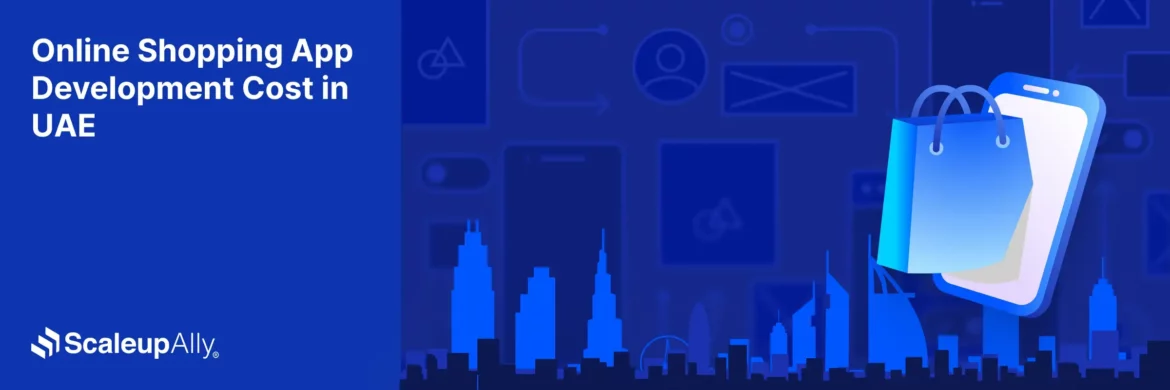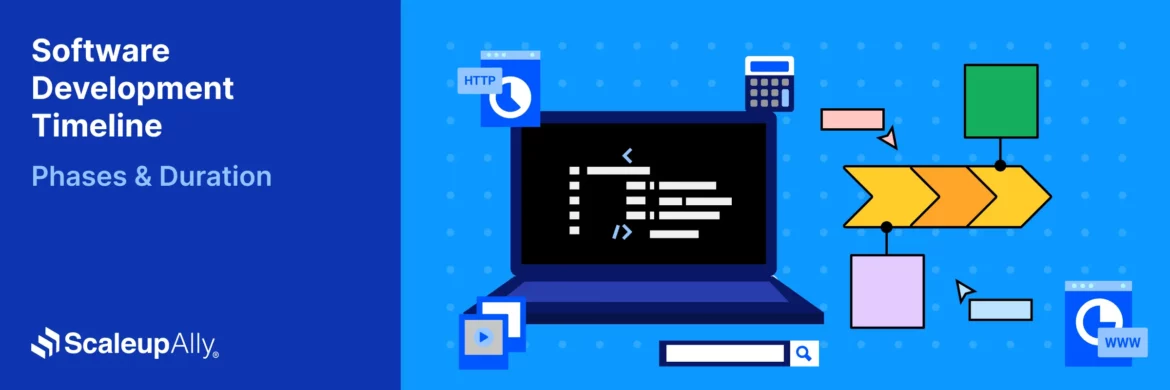
Flutter vs Ionic: Which One You Should Use?
Suprabhat Sen | November 21, 2023 , 10 min read
Table Of Content
With the rise of hybrid mobile apps, developers are often faced with the decision between Flutter and Ionic. These two frameworks have gained significant popularity in recent years, each with its own unique set of features and advantages.
Utilising insights gleaned from a decade of expertise as a Flutter App development firm, we aim to uncover the most suitable option for your project.
In our guide, we’ll break down Flutter and Ionic in a way that’s easy to digest. From peeking under the hood to performance, user vibes, coding ease, testing – you name it, we’ll cover it!
Key Takeaways
- Flutter offers superior performance for complex and visually rich mobile apps.
- Ionic is more web-friendly and ideal for simpler apps and broader deployment, including PWAs.
- Flutter uses Dart and custom widgets, while Ionic relies on standard web technologies like HTML, CSS and JavaScript.
- Testing is more native-focused in Flutter, whereas Ionic supports web-based testing methods.
- The best framework between Flutter and Ionic depends on your project goals, team skills and platform requirements.
Key Differences between Flutter and Ionic
Here’s a comprehensive overview of Flutter vs Ionic to help you understand better.
Flutter vs Ionic: Performance
The performance of Flutter vs Ionic apps is crucial. You have to build apps that perform better.
In terms of performance, Flutter is better than Ionic when it comes to complex applications. Native modules are available as native components, which eliminates the need for any communication bridge on the Flutter platform.
Flutter vs Ionic: Code portability
When it comes to deploying your app across mobile and desktop, both Ionic and Flutter appear evenly matched. Flutter’s early demos show that you can create some great looking iOS and Android apps from a single codebase.
And while their desktop support is still in technical preview, the demos we’ve seen show that you can compile your app to run natively on a number of desktop platforms.
The question is whether you want to deploy your app over the web, either as a traditional desktop web app or a PWA. The inherent limitations of Flutter’s web implementation (expanded upon in the Performance section above) will likely never work for apps that require fast load times and snappy performance — not to mention that their highly proprietary approach will limit the number of web libraries you can take advantage of.
Given that Ionic is built on the web and based entirely on web standards, we think it’s fair to give Ionic the advantage when it comes to targeting mobile, desktop, and the web.
In terms of Flutter vs Ionic speed, Flutter performs better since it is not web-based.
Flutter vs Ionic: Building complex apps
Flutter makes it easy to build complex apps. Flutter apps use a plugin system with a hierarchical structure to facilitate communication between them.
Using Material components in Android or Cupertino Widgets in iOS, you can easily create interfaces. Animated UI, image processing, and location-based services are difficult to add with Ionic. Simple apps, however, are easy to build, and they work perfectly.
Flutter vs Ionic: Future-friendly
The last thing to consider is the shelf-life of your project, and the freedom and flexibility that you’ll have as your app matures.
For Flutter developers, you’re putting all of your eggs in the Flutter basket, meaning if Google kills the project (they never do that though, right?), you’ll be left with a skillset and codebase that are effectively homeless.
With Ionic, you’re betting on the web, so that even if you choose to build on other platforms in the future, everything you build will still be based on open web standards. And, because Ionic relies on Web Components, you can use it with any JS framework. That’s important, because while React and Vue are hot today, that could change tomorrow. And with Ionic you’ll have the freedom to take advantage of whatever tomorrow brings.
Flutter vs Ionic – Testing
Flutter unit testing can be carried out with Spec, Spek, or Mocha. UI testing can be carried out with XCUITest or Appium. Flutter driver packages include testing suites.
In Ionic app testing, web-based technologies are heavily used. Web View tests the app in multiple browsers automatically without emulators. Web component testing is also made easy with Ionic CLI.
Flutter vs Ionic: Comparison
| Category | Flutter | Ionic |
| Created by | Drifty Co. (now Ionic Team) | |
| Initial Release | May 2017 | November 2013 |
| Language | Dart | HTML, CSS, JavaScript (typically TypeScript) |
| Programming Language | Dart | JavaScript, HTML, CSS |
| UI | Uses its own widgets, which provide a unique look and feel | Uses web technologies (HTML, CSS, JavaScript) for UI components |
| Development Approach | Aims for pixel-perfect accuracy and high performance | Aims for rapid development and high productivity |
| Learning Curve | Steep learning curve for developers who are new to Dart | Shallow learning curve for developers who are familiar with web technologies |
| Performance | Generally considered faster and more responsive than Ionic | Performance is slower than Flutter but still acceptable for most applications |
| Community | Growing community, with support from Google | Large and established community, with extensive documentation and resources |
| Documentation | It has well-organised and more informative documentation where we can get everything that we want in one place | It also provides well-structured documentation to the developers. Since it is in the development phase, its libraries can be changed at any time |
| Native API access | Native plugin library, using Flutter native packages | Native plugin library, using Cordova and Capacitor |
| User Interface | Flutter has an excellent user interface in comparison to Ionic. | Its user interface is not good because it renders everything in HTML and CSS. |
| Deployment Options | It can deploy on Mobile, Desktop, and Web. | It can deploy on Mobile, Desktop, Web as well as PWA |
It’s important to keep in mind that these are generalisations, and the best choice between Flutter vs Ionic will depend on the specific needs and requirements of a project. Both frameworks have their own advantages and limitations, and developers should carefully evaluate their strengths and weaknesses when making a decision.
Also Read: Mobile App Development Cost in India [Industry-Wise Cost]
Flutter vs Ionic – Popularity
Since its launch in 2017, Flutter’s popularity has surged beyond 42%. This Google-backed framework has gained significant traction due to its emphasis on high performance and native-like experiences in app development.
On the other hand, Ionic, introduced by Drifty Co. in 2013, gained immense popularity among developers for its open-source toolkit and reliance on standard web technologies. Its Capacitor.js APIs are embraced by 82% of developers. Approximately 5 million developers have utilised Ionic to create an impressive count of 5 million apps.
Which one is better for you, Flutter or Ionic?
Now that you have a comprehensive idea about both Ionic and Flutter frameworks, it is time to conclude Flutter vs. Ionic, which is better. Both Flutter and Ionic frameworks are ideal for developing high-performing cross-platform Android apps.
The best choice for your next Android app development project will completely depend on your specific requirements. It depends on factors such as the objectives of your business, your user requirements, and the platforms on which you want to launch the apps.
If you have good knowledge of Dart and want to develop apps with customizable UI, Flutter can be the best option. It allows you to easily develop Android mobile apps within your tight budget and deadline. It also enables you to write and deploy codes quickly.
On the other hand, if you have a new app idea and want to launch your startup, Ionic can be a perfect choice. It is ideal for developing apps on web-based technologies. Ionic is a great framework for building simple apps that do not require high-end customization.
Whether you want to develop Ionic apps or Flutter apps, make sure to collaborate with a professional app development company for the best outcomes. With the help of professional developers, you can create flawless and high-performing apps to deliver an exceptional user experience.
Also read: Pros and Cons of Using Flutter
Conclusion
In conclusion, choosing between Flutter and Ionic depends on your specific project requirements and priorities. Flutter offers superior performance, a rich set of inbuilt widgets, and a seamless development experience. It is well-suited for complex and visually rich applications that require a high level of customization and performance.
On the other hand, Ionic provides code portability, rapid development, and a familiar development experience for web developers. It is a suitable choice for projects that prioritise code maintainability, cross-platform compatibility, and a native-like user experience.
Ultimately, the decision between Flutter and Ionic should be based on your project’s specific needs and the skillset of your development team. Consider factors such as performance requirements, code maintainability, development experience, user experience, and testing capabilities.
By carefully evaluating these factors, you can choose the framework that best aligns with your goals and ensures the success of your mobile application project.
Are you in the ideation phase for an application, aiming to develop a fully secure and feature-rich app? Let’s talk about it now.
Frequently Asked Questions
Q: What is the main difference between Flutter and Ionic?
The main difference between Flutter and Ionic is the way they approach app development. Flutter is a complete UI toolkit for building natively compiled apps, while Ionic is a hybrid framework that uses web technologies to build cross-platform apps.
Q: Which one has a larger community?
Both Flutter and Ionic have active and growing communities. Flutter’s community has been expanding rapidly, given its backing by Google.
Q: Which one has better support for third-party plugins?
Flutter has good support for third-party plugins, and its package ecosystem is continuously growing. Ionic, being built on web technologies, can leverage a vast array of existing web plugins.
Similar Comparison Articles Around Flutter
Related Blogs

Top 20 Emerging Technologies of 2026
Discover the top 20 emerging technologies of 2026. Explore which innovations are driving change across healthcare, finance, manufacturing, and other crucial industries.
ScaleupAlly Team
Dec 16 ,
9 min read

Online Shopping App Development Cost in UAE | Pricing & Factors Explained
Understand UAE online shopping app development costs in 2025 with pricing ranges, influencing factors, hidden fees, timeframes, and expert savings tips.
Suprabhat Sen
Nov 29 ,
13 min read

Software Development Timeline: Phases, Duration & Estimation Guide
Understand the software development timeline with phase durations, key factors, hidden delays, and practical methods to estimate project time.
Suprabhat Sen
Nov 29 ,
16 min read


